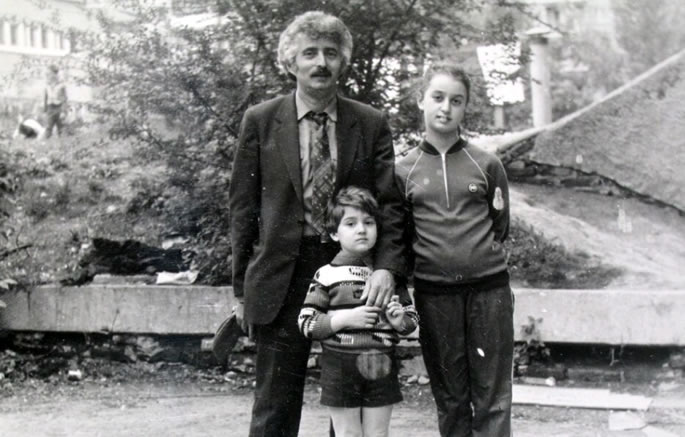It’s been 30 years since my family left the former Soviet Union and arrived in the United States, leaving a world that felt familiar and somewhat comfortable in the hope for a better future. The experience was a heroic milestone for me, never to be forgotten.
When I first heard the story of the Jewish people’s exodus from Egypt, I felt an immediate kinship. I imagined the water miraculously splitting in front them and the emotions they experienced at that moment. I was amazed that even after more than 3,000 years, the Jewish people continued to put enormous emphasis on the story. But just as my people acknowledge their Exodus in their daily prayers, I also treasure the memories of the way my family was saved from the oppression of communism. My personal exodus provided a miraculous chance to build a new life and to experience freedom.
I remember the day in September of 1989 when I walked out of my home in Saratov into the unknown future.
Unaffected by time and space, I felt as if I was trailing behind those walking out of Egypt, holding onto my parents and carrying our two-suitcase allowance per person. This was all we had; this was all we owned. This is who we were: stateless, determined and hopeful.
I was crying so hard I could not see people’s faces. “Why are you crying?” asked a family member who was driving us to the train station. “You will have a better life somewhere else,” she assured me.
I was astonished by her question. At 12, I was crying and mourning the only home that I had ever known. I still wonder how my relative, who was staying behind, didn’t understand the depth of emotion behind my tears. Having a better tomorrow and faith in G‑d’s plan didn’t take away the pain of abandoning the familiar world of my childhood. I was filled with anxiety about entering an unimaginable tomorrow, complete with a new language, mindset, culture and customs. I had so many questions, so much fear and confusion. Yet there is never enough time to adequately prepare.
I asked myself, did children also cry when they were walking away from Egypt? Was Egypt so ingrained in them that they couldn’t fathom a different or better life? I wonder if they also left the key on their table, if they cried, or if they turned around to take a last look at their empty rooms?
In the Exodus, too, there wasn’t time, and the bread did not rise. Matzah has become an eternal symbol of unconditional commitment and dedication to freedom.
In leaving our home, I envisioned standing together with matzah-carrying families and felt that I was not alone. I imagined hearing the promise of G‑d, insisting that we were ready to move forward. I was barely a teen and my brother was 4. Ahead of my family was a long journey of refugee camps in Austria and Italy. We were entering the realm of our personal desert.
Reaching a final destination is not always easy. Even years after our arrival in the United States, we felt lost, toiling and learning how to embrace the new reality. Yet despite feeling exhausted, our spirit was never broken. After all, we were chosen to overcome, to conquer, to build and to connect.
Today and always, we stand together with our people, defined by our readiness to walk out of our personal Egypt, and to face the world and proclaim that we are the most fearless and undefeated nation. We follow our G‑d, and we are not afraid.
https://www.chabad.org/theJewishWoman/article_cdo/aid/4575425/jewish/The-Egypt-of-My-Childhood.htm

